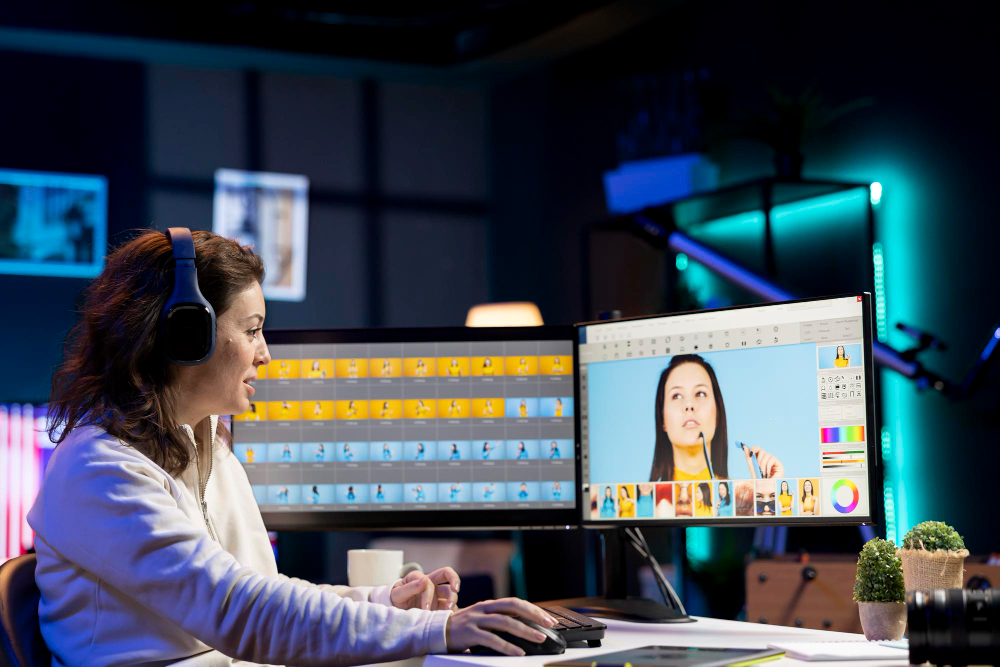It’s a creative and technical subject that blends drawing, design, performance, software and narrative development. If you enjoy storytelling, sketching characters or experimenting with digital tools, Animation could be a great fit for your university studies.
What Is Animation Like at University?
Animation courses are hands-on, project-based and deeply creative. You’ll learn the principles of animation including movement, timing, character design and narrative structure. Courses usually cover a range of animation techniques such as 2D hand-drawn animation, 3D computer animation, stop-motion and motion graphics. You’ll gain skills in storyboarding, concept development and digital production using industry-standard software. The course often ends with a final major project where you’ll create a short film or a portfolio piece that reflects your personal style and technical ability.
How Long Does It Take and What Are the Options?
In the UK, Animation degrees typically take three years, leading to a BA (Hons) or BSc depending on the course’s emphasis. Some universities offer a foundation year or a four-year option with an industry placement. You can also find Animation as part of a broader Digital Media or Visual Effects degree. Some courses focus more on artistic storytelling while others lean toward technical production and 3D modelling. It’s important to explore different programmes to find the one that matches your interests and career goals.
How Will You Be Taught and Assessed?
You’ll be taught through practical workshops, software training, lectures, tutorials and team-based projects. You’ll work on creative briefs and often collaborate with students in related subjects like film, game design or illustration. Assessment is mainly project-based, including animation tests, storyboards, showreels, character designs and written reflections. In your final year, you’ll usually produce a short animated film or portfolio that showcases your animation and storytelling skills.
What A Levels or Subjects Do You Need?
Most universities ask for:
Art or Graphic Design A level — strongly preferred
A portfolio — essential to demonstrate your creativity and ideas
Other useful subjects include Media Studies, Photography, Computer Science or Drama. BTECs in Creative Media or Art and Design are also accepted by many universities. Your portfolio should include sketchbooks, character concepts, short clips or animations, and evidence of storytelling ability.
What Skills Will You Develop?
An Animation degree helps you grow into a skilled visual storyteller and creative professional. You’ll develop abilities in:
2D and 3D animation techniques
Character development and acting for animation
Storyboarding and visual storytelling
Digital software like Adobe After Effects, Toon Boom, Maya or Blender
Timing, movement and pacing
Audio syncing and editing
Teamwork and project planning
Critical thinking and creative problem-solving
You’ll also gain experience creating content that is suitable for games, film, television, apps or online platforms.
What Can You Do With an Animation Degree?
Graduates in Animation work across entertainment, advertising, education, games and digital media. Common career paths include:
2D or 3D animator
Character designer or concept artist
Storyboard artist
Visual effects (VFX) artist
Motion graphics designer
Game animator or cinematic artist
Stop-motion animator
Animation director or producer
Some graduates become freelance animators, work in studios or build careers in related areas like illustration, media production, art direction or teaching. Many also go on to postgraduate study in animation, film or visual effects.
Studying Animation Abroad
Animation is an international industry and many countries offer excellent degree programmes that combine creative and technical training. Here’s what to expect in different parts of the world.
USA
The US has some of the world’s leading animation schools such as CalArts, Ringling College and Savannah College of Art and Design. Degrees typically lead to a Bachelor of Fine Arts and offer strong training in 2D and 3D animation. Programmes often have close ties to major studios like Disney, Pixar or DreamWorks and include internships or industry mentorships.
Canada
Canada is home to a growing animation sector with universities and colleges offering strong degrees in animation and digital arts. Sheridan College is especially well known for 2D and 3D animation. Other schools such as Emily Carr University and Vancouver Film School provide studio-focused training with professional production standards.
European Union
Many EU countries offer Animation degrees taught in English. The Netherlands, France, Germany and Denmark have well-respected art and media schools. French schools like Gobelins in Paris are world-famous for producing high-quality animated films. Dutch and Scandinavian universities often emphasise conceptual development and personal artistic voice.
Australia
In Australia, animation is offered at art schools and universities such as RMIT, Griffith and the University of Technology Sydney. Courses cover character animation, visual effects and digital storytelling. You’ll usually work on a major production project and gain experience using industry tools.
New Zealand
New Zealand’s animation sector is linked to its world-class film industry, including Weta Digital. Schools such as Media Design School and Massey University offer specialised training in 3D animation, game art and visual effects with a strong focus on storytelling and production.
Studying animation abroad can broaden your creative horizons and give you access to different animation styles and production pipelines. It’s a great option if you’re thinking globally and want to work in international studios or projects.
Is Animation the Right Course for You?
Animation is perfect for students who are passionate about visual storytelling and enjoy using technology to bring ideas to life. It suits people who are imaginative, observant and detail-oriented. Whether you want to create your own animated films, work in gaming or contribute to big studio projects, an Animation degree gives you the skills, portfolio and experience to break into one of the most exciting creative industries in the world.





